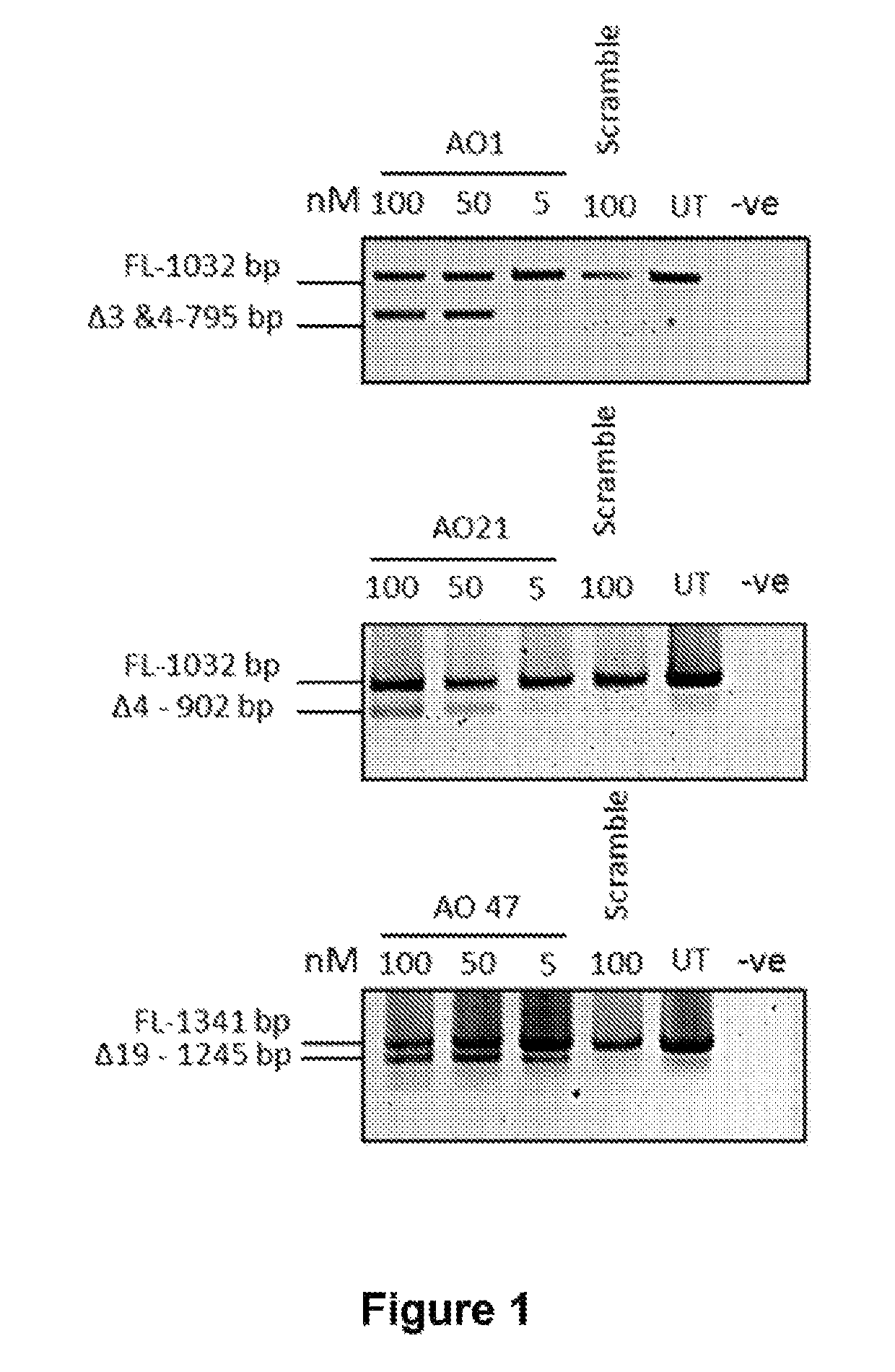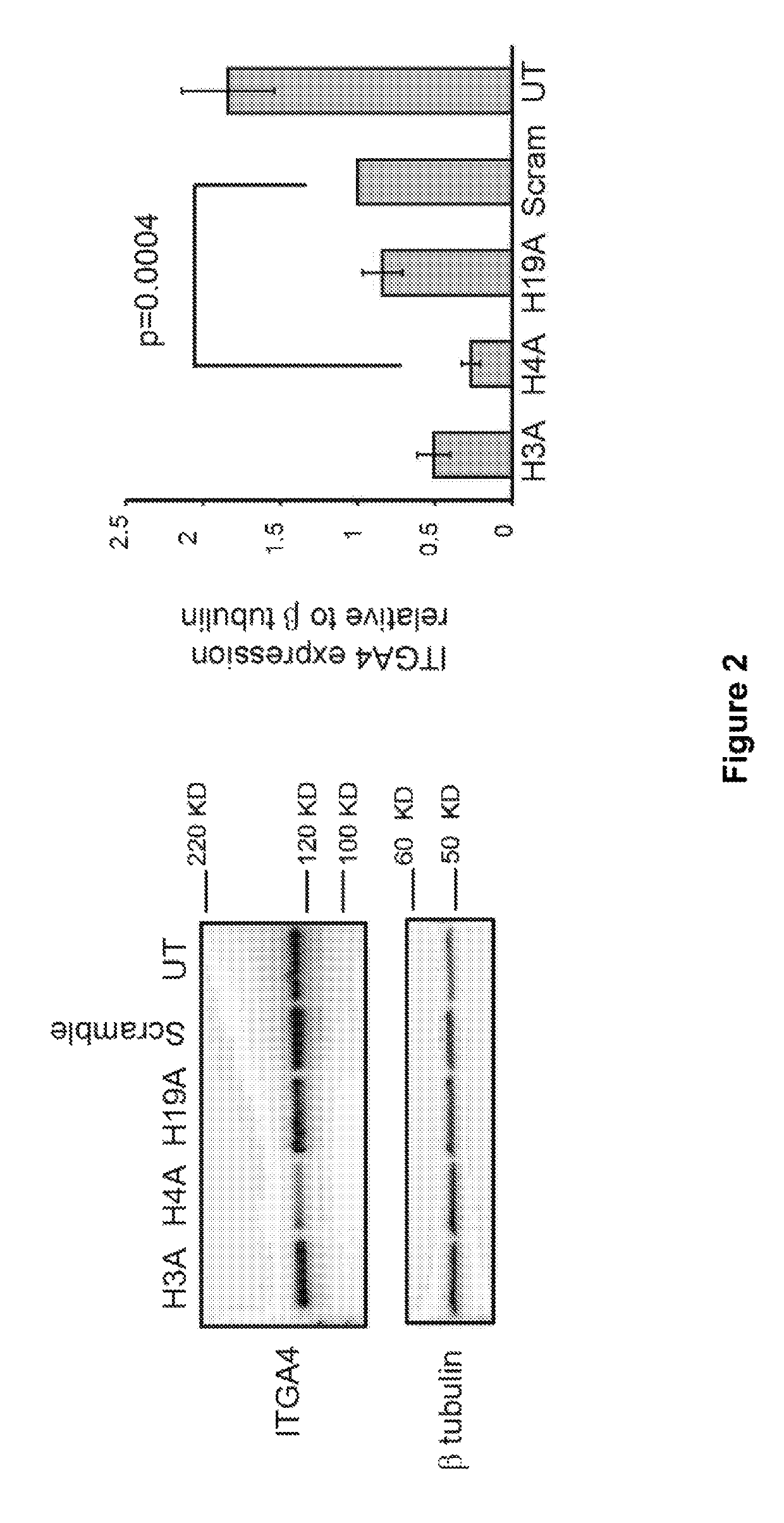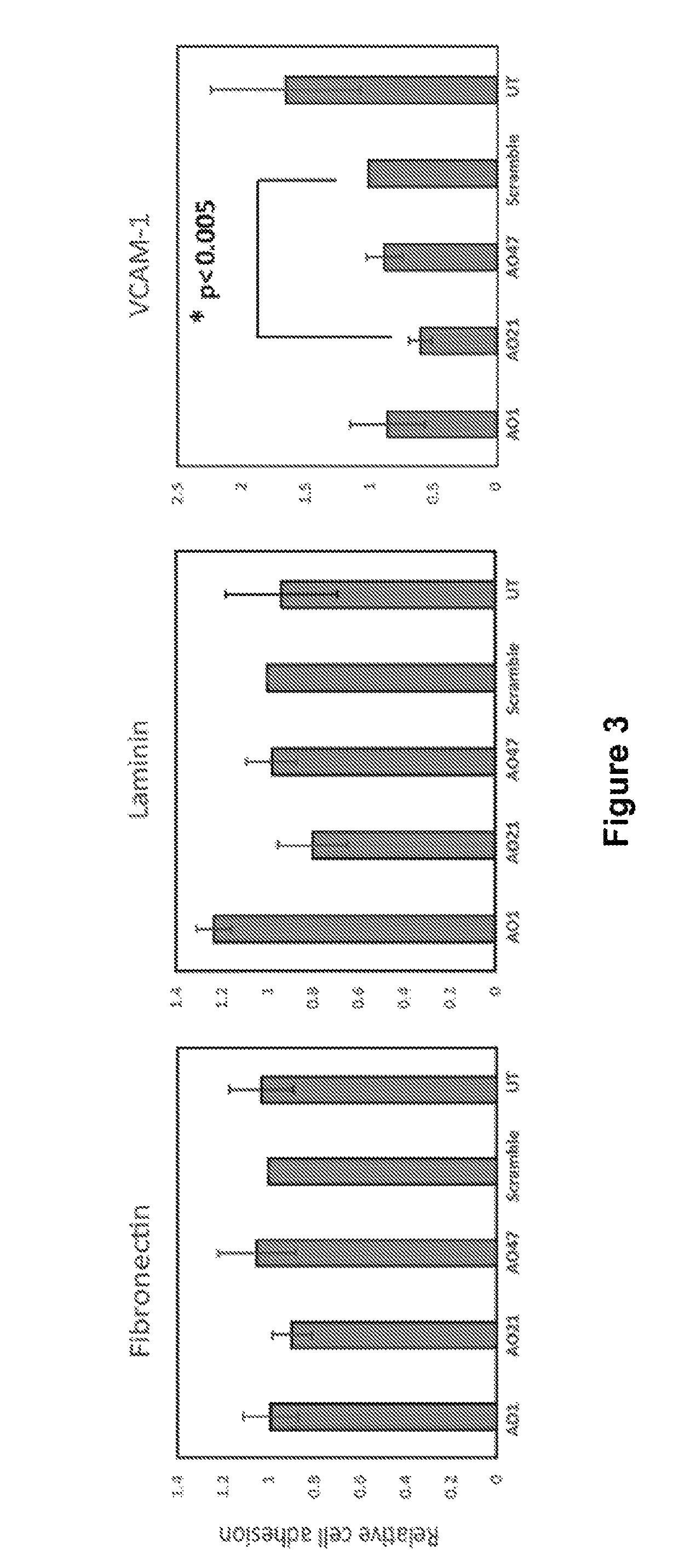Multiple sclerosis treatment
a multi-sclerosis and treatment technology, applied in the field of anti-sense oligomers, can solve the problems of inability to cure, unclear onset, inflammation and lesions, etc., and achieve the effect of preventing or ameliorating the effects of a disease association
- Summary
- Abstract
- Description
- Claims
- Application Information
AI Technical Summary
Benefits of technology
Problems solved by technology
Method used
Image
Examples
example 1
[0196]The nomenclature system defines species, exon number, acceptor or donor targeting and annealing coordinates, where “−” indicates intronic position and “+” specifies exonic location from the splice site, as described herein. Some detailed oligomer annealing coordinates are shown in Tables 3 to 7.
Antisense Oligomers
[0197]Antisense oligomers with 2-O′Me modification were either synthesized in-house or ordered from Tri Link BioTechnologies, Inc [San Diego, Calif., USA].
Cell Propagation and Transfection
[0198]Primary normal dermal fibroblasts were propagated using well established techniques [Villegas and McPhaul, Curr Protoc Mol Biol (2005) 28.3.1-28.3.9]. Cells were seeded and propagated in 75 cm2 tissue culture flasks and transfection with 2OMeAO was performed in 24 well plates. One day before transfection, 15-17,000 cells were seeded in 24 well plates and transfected with a range of concentrations (5-100 nM) of 2OMeAO using Lipofectin® transfection reagent [...
example 2
Jurkat Cells Propagation and Nucleofection
[0211]Acute T lymphocytes leukemia cell line, Jurkat cells were maintained in RPMI-1640 medium supplemented with 10% fetal bovine serum according to the instruction from ATCC. Approximately 500,000 cells were nucleofected at 500 nM using P2 Primary Cell 4D-nucleofactor X kit S (32 RCT) (Lonza, Australia) according to the manufacturer's instructions and incubated for 2-3 days before harvesting the cells for RNA transcript analysis, Western blotting and flow cytometry.
[0212]Jurkat cells were collected 3 days after nucleofection and washed twice with cold PBS before incubating with PE fluorophore labelled anti-human ITGA4 antibody (BD Pharmingen, Australia) at a concentration recommended by the manufacturer for 20-30 min on ice. Cells were washed once with cold PBS and analysed using Beckman Coulter Gallios flow cytometer.
[0213]Jurkat cells were allowed to attach to the poly D coated coverslips for 30 min at 37° C. a...
PUM
| Property | Measurement | Unit |
|---|---|---|
| Tm | aaaaa | aaaaa |
| Tm | aaaaa | aaaaa |
| temperatures | aaaaa | aaaaa |
Abstract
Description
Claims
Application Information
 Login to View More
Login to View More - R&D
- Intellectual Property
- Life Sciences
- Materials
- Tech Scout
- Unparalleled Data Quality
- Higher Quality Content
- 60% Fewer Hallucinations
Browse by: Latest US Patents, China's latest patents, Technical Efficacy Thesaurus, Application Domain, Technology Topic, Popular Technical Reports.
© 2025 PatSnap. All rights reserved.Legal|Privacy policy|Modern Slavery Act Transparency Statement|Sitemap|About US| Contact US: help@patsnap.com



